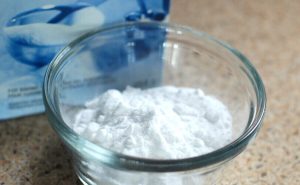Understanding Trans Fats: Key Steps to Improve Your Cholesterol Profile
Natural Approaches to Lowering LDL Cholesterol
No single natural remedy for LDL cholesterol exists, although well-supported lifestyle adjustments can considerably reduce it. Here are some important things to focus on:
Dietary Changes for Healthier Cholesterol
Increase your soluble fiber intake with oatmeal, beans, fruits, and vegetables. Choose healthy fats such as olive oil, fatty fish (salmon, mackerel), and almonds instead of saturated fats found in red meat and full-fat dairy products.
The Importance of Limiting Trans Fats
One essential dietary recommendation for living a healthy lifestyle is to limit your intake of trans fats. These hazardous fats are typically present in processed foods and fried foods and have been related to several major health issues, including heart disease, stroke, and diabetes.
Understanding Trans Fats
Trans fats are generated when liquid vegetable oils are partially hydrogenated, which extends their shelf life and stability. However, this process converts them into a difficult-to-digest state, which can lead to the accumulation of dangerous cholesterol in the body.
Identifying and Avoiding Trans Fats
Many popular foods, including margarine, baked goods, and snacks, contain significant trans fat. To avoid trans fats and make healthier choices, read food labels carefully. Choose fresh fruits and vegetables, lean proteins, and whole grains, which are important nutrients and can help keep your body healthy and invigorated.
Benefits of Reducing Trans Fat Intake
Limiting your intake of trans fats and eating healthier foods can greatly lower your risk of developing chronic health problems and improve your general quality of life.
Additional Lifestyle Changes for Cholesterol Management
Maintain a Healthy Weight: Losing weight if you are overweight can help your cholesterol levels. Manage stress: Chronic stress might lead to elevated cholesterol. Relaxation practices such as yoga or meditation may be beneficial. Limit your alcohol consumption: Excessive drinking can raise your bad cholesterol.
Consult Your Doctor for Personalized Advice
These modifications have the potential to enhance your cholesterol levels drastically. Talk to your doctor about your cholesterol goals and whether these lifestyle changes suit you. They can also track your development and evaluate whether medication is required.













